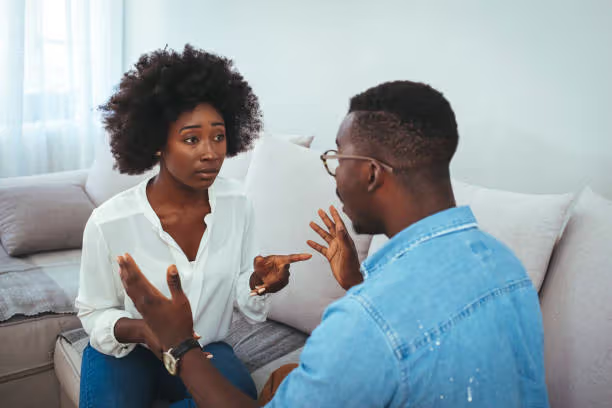You look so amazing today. Did you change your hair?
You just … wow. You look fabulous.
Oh, that’s not to say you don’t always look great. Because you do. No, I mean it.
It’s just that there’s something about you today that I can’t quite …
Wait. I think I know what it is. You’re reading an article from YourTango, which means it is more than safe to assume that you’re really, really smart.
And as everyone knows, nothing is sexier or more charismatic than public displays of pure intelligence and curiosity.
In fact, I’d be willing to bet that you already know the scientific and artistic significance of the Golden Ratio and maybe even the Fibonacci numbers — 1.618 … ad infinitum.
In case you forgot, these are the numbers that determine beyond all mathematical doubt that someone or something is aesthetically pleasing to human senses and sensibilities.
It’s how we quantify physical beauty, yes. But it’s more than that.
It’s a measurement of balance, consistency, harmony, and functionality.
If someone likes the way something (or someone else) looks, they generally believe it (or that person) is useful — or in the case of romantic attraction, worth pursuing as a partner.
Hence, the aesthetic-usability effect is a manifestation of attractiveness.
Of course, this just scratches the surface of the topic. So, we reached out to three YourTango Experts relationship authorities to ask how people might be sabotaging their own attractiveness — be it surface beauty or personal charisma.
Naturally, you don’t have any of these small habits. I mean, just look at you!
But in case you wonder why certain people might not measure up to your ideal of attractiveness, these responses just might provide helpful clues.
Here are the small habits that destroy your attractiveness, according to relationship experts:
1. Talking too much about your shortcomings and insecurities
When we get comfortable with people we start to tell them how we feel.
The problem with that is that we are often insecure and have had endless bad things happen to us. When I repeatedly tell a potential partner or my official partner that I feel unattractive, that everyone always leaves me, my abandonment issues are triggered, etc.
I feel as though I should be able to say these things to someone I’m contemplating forever with but if I see myself as someone everyone walks away from they could start seeing me the same way.
My insecurities could become self-fulfilling prophecies if I continue to give them energy.
When it comes to confidence it’s often begged to “fake it until you make it,” instead of letting your insecurities get the best of you and ranting about all your imperfections.
What are you hoping to accomplish by discussing your insecurities? Are you hoping to receive some words of affirmation?
It’s better to ask directly or put on something sexy and wait for the compliments to flow organically.
Your words are powerful. Speak with caution.
– Erika Jordan, love coach, NLP
2. Forgetting to make a smile your default facial expression
Not smiling is a way to diminish your attractiveness. I have heard in my practice that some people pride themselves in having “RBF,” resting b***h face or duck face.
Usually, when I ask about the concept, the motivating factor is fear, social anxiety, or low self-esteem, and having a frown or pout is known to push people away, intimidate or create a way of being unapproachable.
People will choose to smile once they get to know someone. Choosing to smile most days every day is an easier more effective approach and is proven to improve your attractiveness.
People are drawn to a smile and positive energy. Smiling releases a chemistry in our brain that makes us happier, more approachable, and more attractive.
Seeing a smiling face in a sometimes angry and sad environment is a breath of fresh air.
Smile today and you will be pleased with the response from the people that you attract.
– Dr. Susan Pazak, clinical psychologist and life-change expert
3. Failing to account for inevitable changes that come with the passage of time
There are two kinds of attraction, and the answer to the question depends on which of the two we’re talking about.
First, there is the attraction that is most often referred to as chemistry.
Chemistry is literally a chemical high that corrals six hormones and neurotransmitters in such a way that you are totally convinced you must pursue or allow yourself to be pursued by a person.
When you are hyped up on this chemical concoction of charisma, there is one very specific thing that immediately breaks the trance. That is pain, either physical or emotional, as both kinds of pain fire off another neurotransmitter that puts all the others on hold.
In other words, if you’re doped up on chemistry and break your wrist in a fall, the pain-related brain chemicals will release you from your obsessions.
A painful emotional upset will do the same thing. This is one of the reasons why research has told us that chemistry only lasts two years.
More accurately, for many, two years of challenges in a relationship is plenty of emotional pain to douse out chemistry.
The other kind of attraction has to do with alignments — values, communication styles, likes, desires, attitudes, and of course, body types.
This person feels like a great fit and their behaviour proves it until it doesn’t.
Problems arise through small habits like becoming less attentive, poor hygiene, inconsistent behaviours like huge gaps in returning calls or messages, and priorities suddenly changing with no indication of why.
And the biggest downer is anytime a person assumes they know what you need, want, or desire — but turns out to be wrong — the attraction is likely to burn out.
















